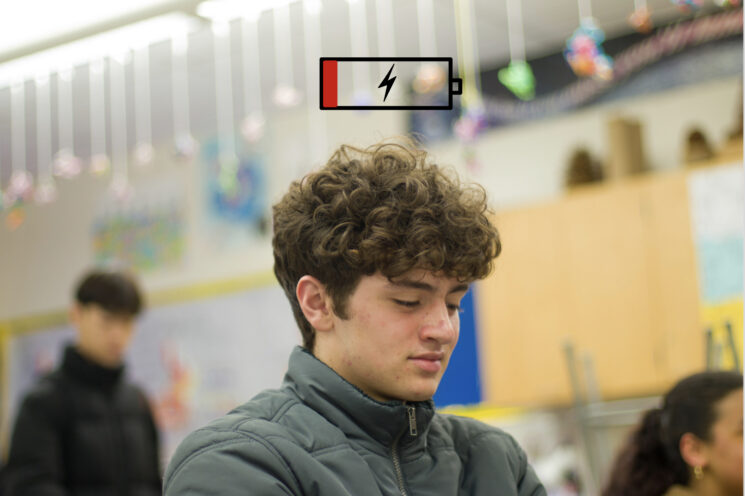
By Jenny Tran
I was in seventh grade, and I had nearly twenty absences.
There were varying reasons for them. Different symptoms. Headaches. Muscle aches. The cough. A fever.
The truth is: I wasn’t really sick for most of them. That is, if you define being “sick” as being physically unwell. On the outside, I honestly didn’t feel all that terrible.
Inside, though, was a different story. I felt like I was fighting a losing battle everyday, my brain prepared to ruin every waking moment for me. I would cry on my way to school every morning. I would continuously go to the nurse’s office to check out. One morning, I ended up not entering the campus at all, just sitting on the sidewalk outside until my dad drove back to get me.
At the time, I didn’t understand it. My parents didn’t either, and they were concerned. They would tell the school I was physically not feeling well, worried that they wouldn’t excuse the absences if I was just “feeling sad” that day.
For many students, being at school seems to be the end-all, be-all. School itself is notoriously stressful. Students are consequently overwhelmed. And if you miss even a day or two, you’re likely going to end up struggling to catch up on everything you missed from all your classes.
Being absent simply isn’t a viable option for many—unless you’re sick with the flu or something. But for those who need a break from their studies to mentally recharge, they’re faced with a different kind of reaction. Maybe one they themselves have.
There is a prevalent stigma around asking for a day off to focus on your mental health, stemming from these beliefs that you should prioritize your work over your personal well-being. After all, in such a fast-paced, predominantly productive society, the concepts of “breaks” appear almost alien to some people.
Especially for those who hold such high work ethics, taking a day off without visible symptoms or compelling reasons can almost be embarrassing. And if not embarrassing, at least undignified.
This shouldn’t be the attitude we allow to cloud our judgment. And, especially considering the worsening mental health crisis for adolescents, we need to take all the preventative measures possible to keep ourselves healthy and productive.
“Some people think that when you’re taking a mental health day, you’re just slacking off,” junior Alinne Dao said. “But, I think you just need a break to just stop, put down everything you’re doing and reflect.”
Mental health days are just as important and necessary as any other sick day. You wouldn’t go to school if you had a 100 degree fever. You would stay at home until you feel better and well rested enough to return to campus. The same applies if you were mentally not feeling well.
And just like any other common cold or flu, symptoms can worsen if you’re out and about like normal. There’s a difference between striving to push yourself and feeling overworked to the point of no return. You shouldn’t try to force yourself through the day if you know you don’t have the headspace to handle it. Not taking needed breaks just perpetuates the issue, and it can go so far as to result in burnouts or larger problems.
You shouldn’t feel ashamed about taking a day or two off to revitalize your mind if you feel that you can’t function normally. According to Mayo Clinic, even just stepping away from the stress for a short time can benefit both your brain and body, allowing you to be much more motivated and productive in the long run.
But while many schools across the country provide mental health resources for their students, not all of them excuse absences if you aren’t showing physical symptoms. And even if they do, not everyone wants to disclose the real reason why they are skipping, for fear of judgment or something alike.
Because when I was twelve years old, I felt ashamed to admit that I was mentally ill. To not only my school, or my parents, but to myself. And I felt ashamed for taking days off to work on myself and get the rest my mind demanded.
But now, looking back, I don’t feel regret for being absent all those times. If it was the only way I felt I could survive the school year, then I find no point in beating myself up about it. What I do regret, though, is not seeking the help I desperately needed at the time, because then I wouldn’t have had to suffer for years before getting the treatment I needed.
We need to work to dismantle the stigma around mental health days and prioritize putting students’ well-beings over them being present at school. We need to assure that every student gets the support they need without any judgment.
Because even just one day off can save a person’s life—but this wouldn’t matter at all if that one day isn’t allowed.





